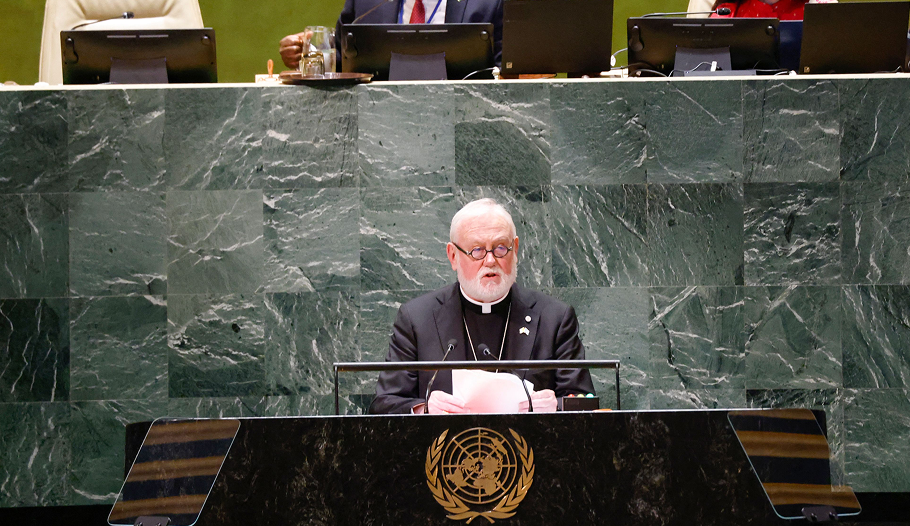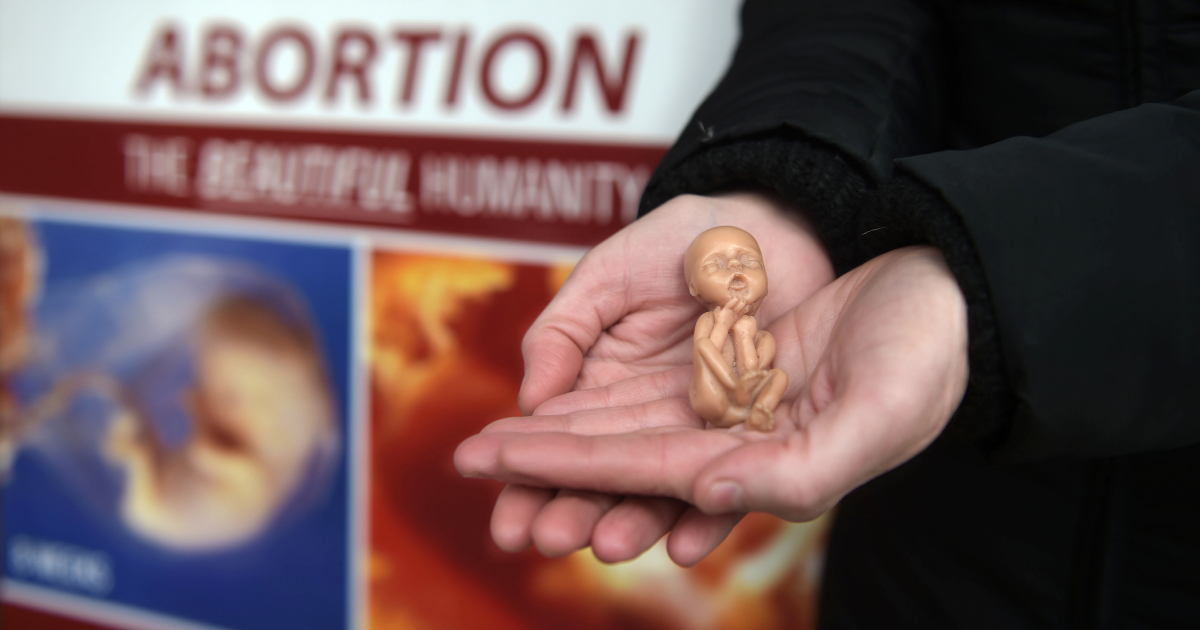Archbishop Paul Richard Gallagher, Secretary for Relations with States and International Organisations, has called on the international community to do more to end the persecution of Christians globally.
Speaking at the UN General Assembly in New York on 29 September, Archbishop Gallagher stated that “Christians are the most persecuted group globally, yet the international community seems to be turning a blind eye to their plight.”
In his wide-ranging speech, the Archbishop also reaffirmed the Holy See’s commitment to “lasting peace between Israel and Palestine based on a two-state solution”. He added that Pope Leo is calling for the “hostages [to] be freed, that a permanent ceasefire be reached, that the safe entry of humanitarian aid be facilitated, and that humanitarian law be fully respected, especially the obligation to protect civilians as well as prohibitions of collective punishment, indiscriminate use of force, and the forced displacement of the population.”
Syria was also highlighted as an area of concern, with Archbishop Gallagher stating that “Syria’s independence, sovereignty and territorial integrity must be fully respected.”
The Archbishop gave a particularly erudite explanation of the geopolitics of Africa, noting South Sudan, Sudan and other parts of the Horn of Africa as areas of deep concern. The Democratic Republic of the Congo, which saw the especially harrowing killing of 64 people in an attack on a Catholic parish, was also mentioned. Reflecting on the violence in the region, Archbishop Gallagher said: “The country has been facing one of the world’s most complex multidimensional crises for years, characterised by an unstable security situation and an increasingly severe humanitarian emergency involving acute malnutrition and mass displacement.”
However, the Archbishop also commended the June peace agreement between the DRC and Rwanda, and the July peace treaty between the DRC and the Rwanda-backed rebel group M23, noting their just aim “to end the decades of fighting in the east of the country.”
Reminding attendees that this year marks 80 years since the invention of the atomic bomb and its use on Hiroshima and Nagasaki, the Archbishop stated that “the recourse to such armaments is always disproportionate and therefore immoral.”
The Archbishop said that “the persecution of religious minorities, particularly Christians, persists globally.” He noted that over 360 million Christians live in areas where they experience high levels of persecution or discrimination, with attacks on churches, homes and communities intensifying in recent years.
The Archbishop’s comments were particularly necessary given that representatives of dozens of countries currently impose laws that persecute and restrict the activities of Christians. According to 2022 Pew Research, 59 countries have “high” or “very high” government restrictions on religion, with much of this targeting Christian groups.
According to Open Doors, an international organisation that monitors and supports persecuted Christians, the worst countries to be a Christian in 2025 are North Korea, Somalia, Yemen, Libya, Sudan, Eritrea, Nigeria, Pakistan, Iran, and Afghanistan.
(Photo by KENA BETANCUR/AFP via Getty Images)

















